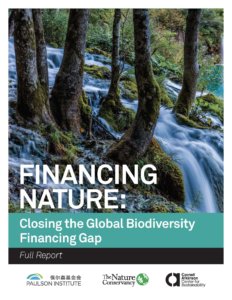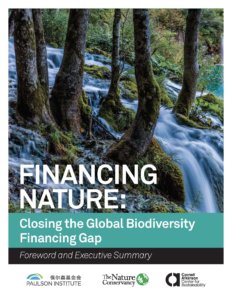CBD COP 15 runs from December 7 through 19 in Montreal. World leaders will gather to agree to the Post-2020 Biodiversity Framework—a set of principles guiding the future of biodiversity. One of the most important topics on the agenda is how to fiscally support conservation efforts. Drawing on insights from our Financing Nature report, experts from the Paulson Institute will share their insights at COP 15.
Deborah Lehr Addresses COP 15
PI’s Vice Chairman and Executive Director Deborah Lehr offers remarks on the Paulson Institute’s contributions to the negotiations through Financing Nature, including:
- PI’s landmark report outlines a two-pronged approach to addressing the biodiversity crisis—the need to mobilize new resources for biodiversity conservation and reduce activity that harms nature.
- She also announces the release of the Paulson Prize case studies, a collection of some of the most innovative responses to the twin crises of climate change and biodiversity.
Hank Paulson’s COP 15 Keynote
PI’s Chairman and Founder Hank Paulson delivers remarks on the Paulson Institute’s contributions to the negotiations. Hank highlights four key takeaways from Financing Nature:
- Preventing environmental damage is far cheaper than cleaning it up afterward.
- We are losing biodiversity rapidly because political and economic systems and financial markets do not properly account for nature’s services.
- The biodiversity financing gap is about $711 billion over the next ten years.
- Biodiversity loss and climate change are twin crises that must be addressed simultaneously.
Click here to learn more about the key findings and takeaways from PI’s Financing Nature Report.





